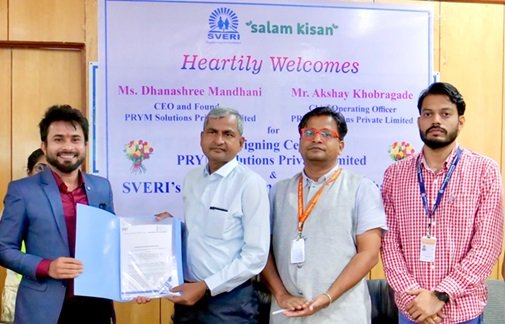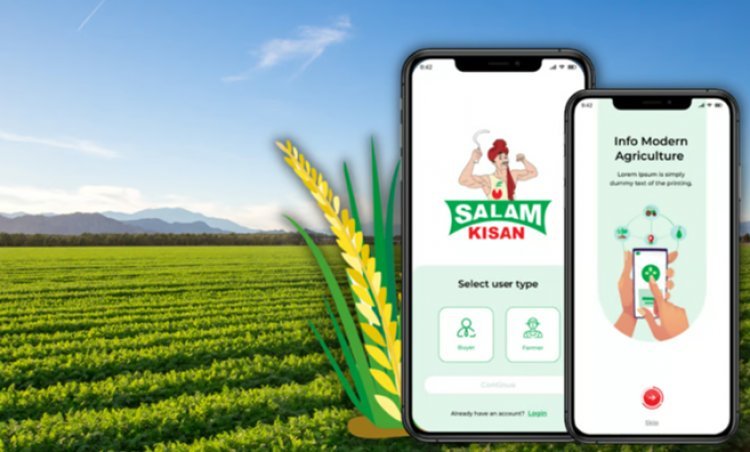Salam Kisan, SVERI to set up a Joint Remote Pilot Training Organization for drone pilots
The partnership is focused on training and certifying professional drone pilots, creating employment opportunities and empowering rural communities.
Salam Kisan, a pioneering platform driving measurable transformation, has entered into a strategic partnership with SVERI College of Engineering, Pandharpur, Solapur, to establish a Joint Remote Pilot Training Organization (RPTO) at SVERI’s state-of-the-art campus. This collaboration represents a milestone in bridging the gap between industry and academia, aiming to create a skilled workforce and foster innovation in the rapidly expanding drone sector.
As India rapidly adopts drone technology across sectors such as agriculture, logistics, and infrastructure, the demand for skilled drone pilots is witnessing significant growth. Industry estimates suggest that India will need over 1 lakh professional drone pilots by 2027. The partnership between Salam Kisan and SVERI is set to address this demand by providing comprehensive training and certification programs for drone pilots. The focus is also on creating employment opportunities for rural youth. The initiative is rooted in the shared vision of socio-economic development through technological empowerment, paving the way for significant growth and transformation in underserved communities.
The formal signing of the Memorandum of Understanding (MoU) was conducted by Akshay Khobragade, COO of Salam Kisan, and Dr. B. P. Ronge, Principal of SVERI College of Engineering. The event was graced by dignitaries, including Dr. Prashant Pawar, Vice Principal of SVERI, and Ramchandra Mashale, Founder and Director of MSR IAS Academy.
Speaking on the partnership, Akshay Khobragade, Chief Operating Officer of Salam Kisan, said, “This initiative is a significant step forward in building a resilient drone ecosystem in India. Through our partnership with SVERI, we aim to provide rural youth with the skills and opportunities necessary to thrive in this high-growth sector. Together, we are committed to shaping a future where technology drives employment and innovation.”
The collaboration is strategically designed to equip individuals with industry-relevant skills while creating opportunities for sustainable growth. With its focus on fostering employment and technological advancement, the RPTO is set to contribute meaningfully to the development of a modern workforce that can drive India’s leadership in the global drone industry.
Dhanashree Mandhani, Founder and CEO Salam Kisan, remarked, “Our collaboration with SVERI to establish the Joint Remote Pilot Training Organization is a significant stride towards empowering rural youth with advanced skills. With DGCA issuing remote pilot certificates to over 21,000 drone pilots as of December 2024 and industry projections indicating a need for over 100,000 professional drone pilots by 2027, the demand for skilled operators is evident. By focusing on drone technology, we aim to create employment opportunities and foster innovation in agriculture and beyond. This initiative aligns with our broader vision of leveraging technology to drive socio-economic development in underserved communities, as demonstrated by our recent partnership with the Maharashtra government to boost drone manufacturing and training.”
The partnership is focused on training and







